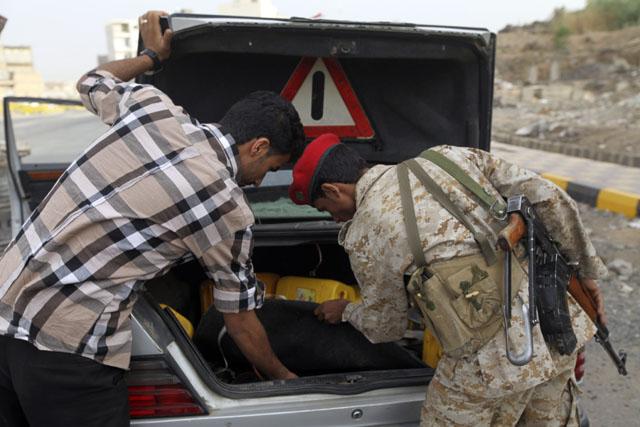You are here
Shiite rebels agree to pull out of key Yemen city
By AFP - Jul 12,2014 - Last updated at Jul 12,2014
SANAA — Yemeni Shiite rebels agreed Saturday to withdraw from Amran, seized in a push towards the capital, in a deal struck with authorities who are dispatching troops to the strategic city.
The Houthi rebels seized the northern city Tuesday, in a new challenge to the government, which is also facing an Al Qaeda threat and a separatist movement in the south.
The capture of Amran, just 50 kilometres north of Sanaa, threatened a federalisation plan that was agreed in February following national talks as part of a political transition.
The rebels, also known as Ansarullah, have complained for years of marginalisation in the Sunni majority country, and say the transition plan would divide Yemen into rich and poor regions.
In February, they advanced from their mountain strongholds in the remote north towards the capital, battling loyalist troops and pro-government tribesmen.
Rebel spokesman Mohammed Abdessalam told AFP Saturday that the Houthis had struck a deal with the defence ministry to withdraw from Amran and that troops would move in later in the day.
“Our men will withdraw from Amran as soon as an army unit moves in,” Abdessalam said, adding that a regiment was on its way from the northern city of Saada.
“Other military units... will follow suit,” he said.
Amran fell after four days of fierce fighting that unconfirmed reports ay killed as many as as 400 people. The Red Crescent said the violence uprooted at least 10,000 families.
The unrest triggered concern at the United Nations, where the Security Council unanimously called on the Shiite rebels to leave Amra.
A statement said the fighting impeded Yemen’s political transition, threatened to impose sanctions on those blocking it and called on all fighters to disarm.
The council demanded that “the Houthis, all armed groups and parties involved in the violence withdraw and relinquish control of Amran and hand over weapons and ammunition pillaged in Amran to the national authorities loyal to the government”.
Calling on all sides to disarm and implement existing ceasefire agreements, the council also asked military units to “remain committed to their obligation of neutrality at the service of the state”.
But violence was again reported Saturday between troops and rebels around the Mount al-Dhin region overlooking the Amran-Saada highway and the village of Darwan near Sanaa, the Ansarullah spokesman said.
And tribal sources said fighting has also raged in the northeastern province of Al Jawf between Shiite rebels and tribes close to the Sunni Al Islah Party, with seven killed since Friday on both sides.
Houthis, who have been battling the central government for years, are suspected of trying to expand their sphere of influence as Yemen is reorganised into six regions.
They have repeatedly complained of marginalisation under former president Ali Abdullah Saleh, who ruled for 33 years before being forced out in February 2012.
He was replaced by his long-time deputy Abed Rabbo Mansour Hadi under a UN- and Gulf-sponsored deal.
Related Articles
Yemeni authorities on Wednesday accused Shiite rebels of “atrocities” in the northern city of Amran, which they seized in a major advance towards the capital.
Two days of clashes between Shiite rebels and Sunni tribesmen fighting alongside hardline Salafists in northern Yemen have killed at least 23 people, sources said on Sunday.
Some 10,000 families have fled the northern Yemeni city of Amran in three days to escape an intensified battle between the army and Shiite rebels, the Red Crescent said Tuesday.












